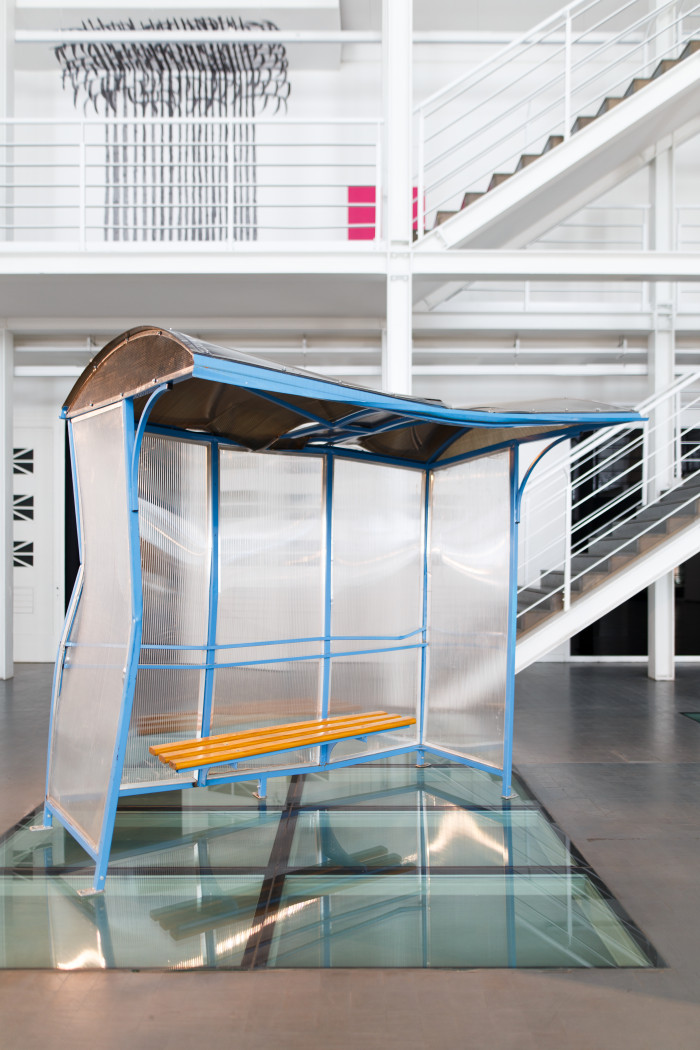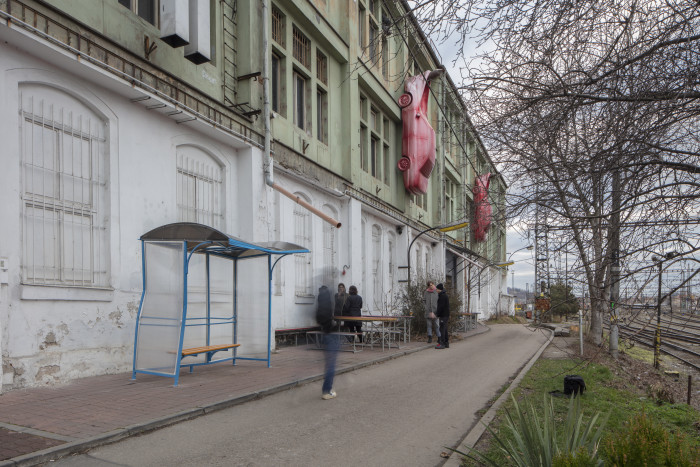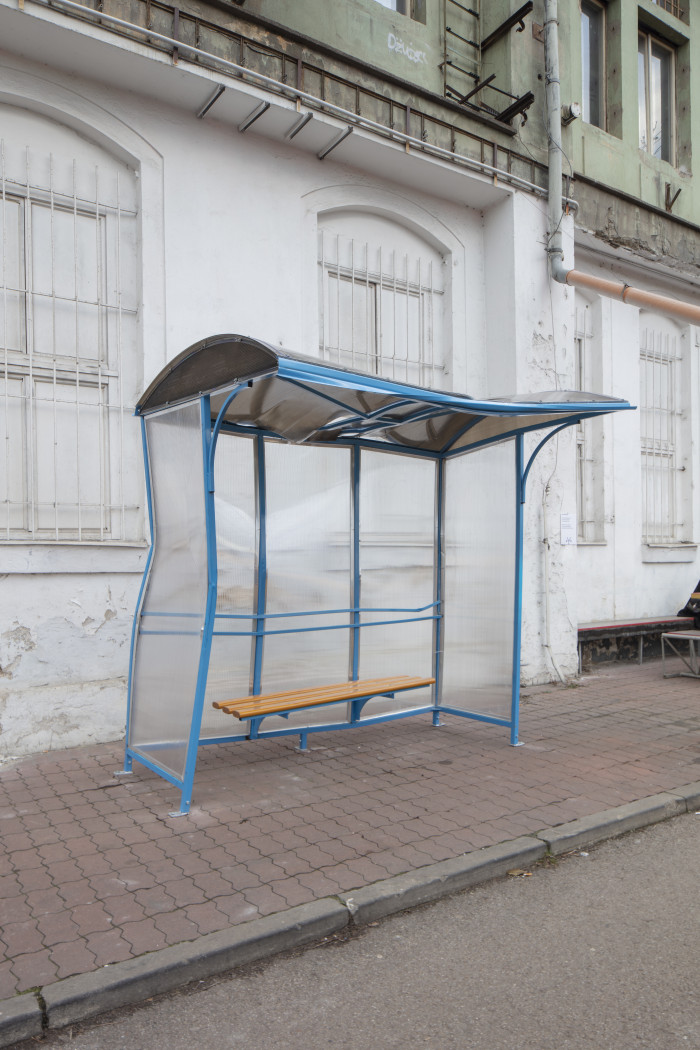
Mind How You Dance: A Central and Eastern Europe Monument Project, installation view at The New Dictionary of Old Ideas exhibition, TRAFO Center for Contemporary Art, Szczecin
Monument as an object and as a social event exists only in two instances: when erected and when dismantled. As observed by Robert Musil, a monument becomes invisible between these moments. Despite how spectacular it looks, over time it becomes ordinary, grows into the fabric of the place and solidifies itself vulgarly on its pedestal.
What is commonly regarded as a monument, certainly is not a bus stop. What is more, it will not be a refurbished bus stop, put up in one of the self-made centers of Europe. Having ambition to represent this peculiar region, the author does not want to remember yet another unsuccessful modernization project. Along with the promise of the end of History and dashing westernization, we have got economic immigration, decay of local industry and nationalist tendencies. Out of spite to Fukuyama, the History has not ended, contrary to bus connections between county towns. A kind of game with the meaning of a monument can be discovered in Rusicka's project. We can deliberate on its form and state of being, try to give it a utilitarian function, or discuss concept of an anti-monument. However, a more important aspect of the installation is the issue of commemorating defeat, or looking in a more optimistic manner, commemorating unfulfilled promises which still bear leftover hope. Exactly like everyone waiting for the bus, on a bus stop, in so called Nowhere.
Text by Aleksy Wójtowicz, translation Stan Baranski

Mind How You Dance: A Central and Eastern Europe Monument Project, installation view at The New Dictionary of Old Ideas exhibition, MeetFactory, Prague

Mind How You Dance: A Central and Eastern Europe Monument Project, installation view at The New Dictionary of Old Ideas exhibition, MeetFactory, Prague